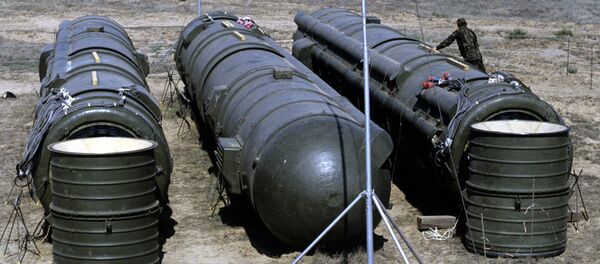OMAHA (Sputnik) — The INF Treaty, signed in 1987, significantly reduced the arsenal of non-strategic missiles available to the United States and Russia by prohibiting all nuclear and conventional missiles and their launchers with range between 310 and 3,420 miles. The United States and Russia have repeatedly accused each other of violating the INF treaty.
"Our desire is to be in the INF treaty with the Russians and to be both in compliance," Hyten stated at the seventh annual STRATCOM Deterrence Symposium in Omaha, Nebraska on Wednesday.
However, Hyten claimed Russia has allegedly violated the INF treaty, albeit not in a major way, and it is up to the United States to respond to the agreement’s violations.
"My view from a military perspective, is that if you have a nation that is party to a treaty and that have violated the treaty, which the Russians have, not largely, but nonetheless they violated the treaty, then it's up to the United States to respond," Hyten said.
"You have to look at the overall strategic situation, and then respond strategically. And that may involve pursuing nuclear capabilities, that may involve doing a number of different things, but it may involve political responses, it may involve economic responses, it may involve a number of different things," Hyten said.
Russian Foreign Minister Sergei Lavrov has repeatedly said that Moscow was in full compliance with the INF treaty. According to Lavrov, Moscow had its own concerns over Washington's compliance with the INF Treaty and had repeatedly called on the US to discuss the most controversial points related to the agreement's implementation in substance.




